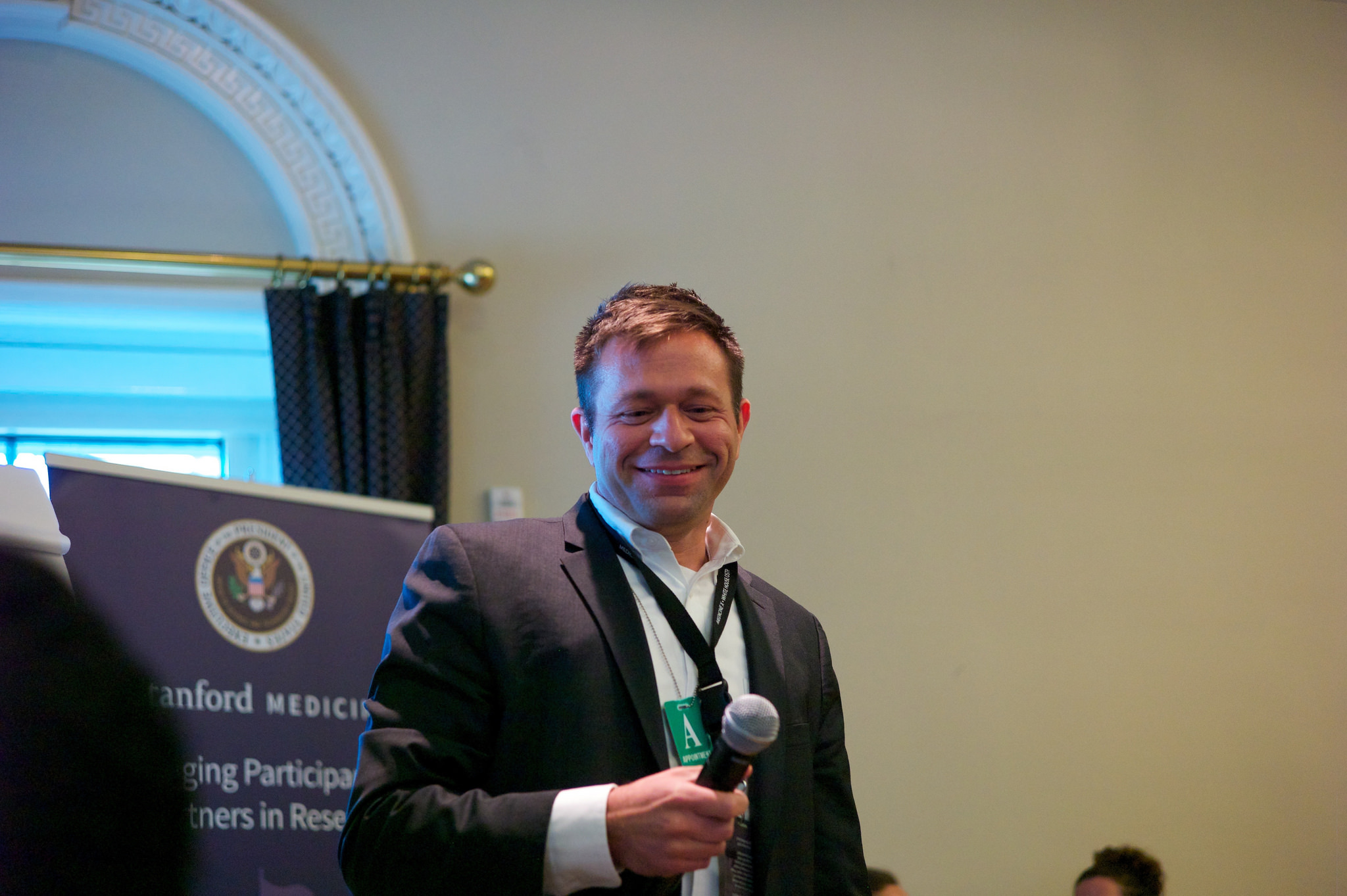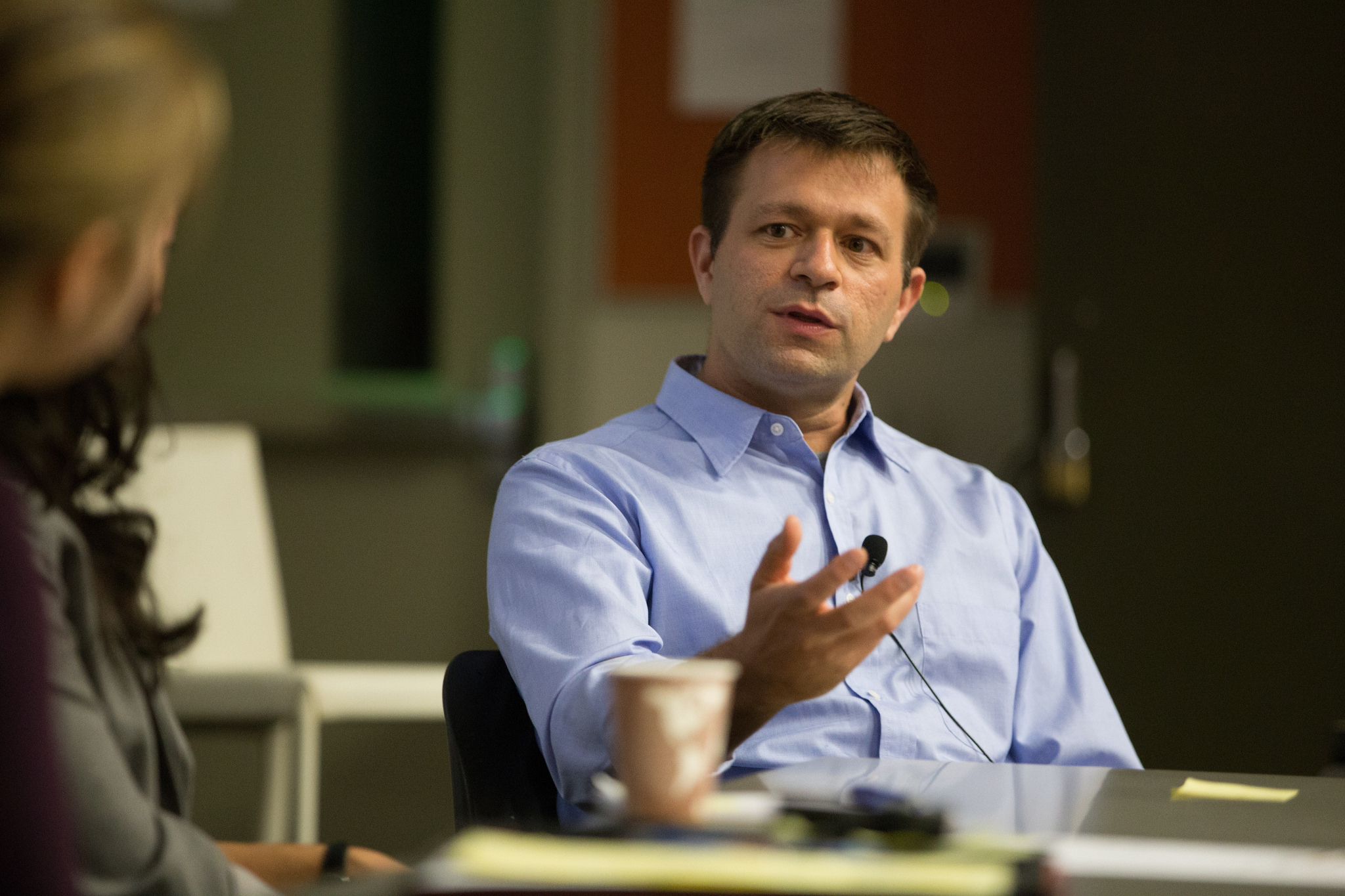

DOUG KANTER
A PHOTOJOURNALIST WHO DOCUMENTED 9/11 HELPS DIABETICS
SEE THE IMPACT OF THEIR DAILY HEALTH DECISIONS
SEE THE IMPACT OF THEIR DAILY HEALTH DECISIONS
In late 2011, Doug Kanter made an unconventional New Year’s resolution: for the next year, he’d track every single data point related to his Type 1 diabetes. Every blood sugar reading. Every insulin dose. Every piece of pizza. Every workout. He’d track his location. He’d upload his photos. And then he’d revolutionize the way diabetes was managed.
Kanter has lived with Type 1 diabetes for 30 years. During that time, he’s maintained an interest in data, especially the data collected by various machines designed to keep his blood sugar under control. He was especially interested in the “mental burden” that patients with diabetes experience—constantly running numbers, trying to remember what they’ve last eaten or when they’ve last exercised.
“I always wanted there to be better solutions for patients like me,” he says.
For much of his life, Kanter worked as a photojournalist. He spent seven years making pictures in New York, then eight more in Beijing. He documented the aftermath of the 9/11 attacks and the Beijing Olympics. By 2011, though, he could feel his passion waning. He was ready for a change.
Despite applying late, Kanter won a place on the waitlist for New York University’s Interactive Telecommunications Program. It was time, he decided, to follow a new dream. And so Databetes was born.
The idea of Databetes is, essentially, to create a tool to help patients manage the “mental burden” of diabetes by collecting and presenting data to help them make informed decisions. During his two years at NYU, Kanter learned computer programming and data visualization. Then he started working to combine the hundreds of thousands of data points created by his blood glucose meter and continuous glucose monitor and stomach pump.
After graduating, he began developing an application, called Meal Memory, that combines people’s blood sugar data with the photos they take of their meals. Several thousand people have downloaded the app, which allows them to track how each meal affects their blood sugar and better manage what they eat.
Now he’s beta-testing another application, called Recap, which sends patients weekly summaries of diabetes-level data.
“I really want a simple way to see the top-level, bigger picture of how I’m doing,” he says.
Kanter considers Medicine X unique because of the importance it places on patient experience.
“It seems like such a novel idea,” he said. “But it shouldn’t be.”




